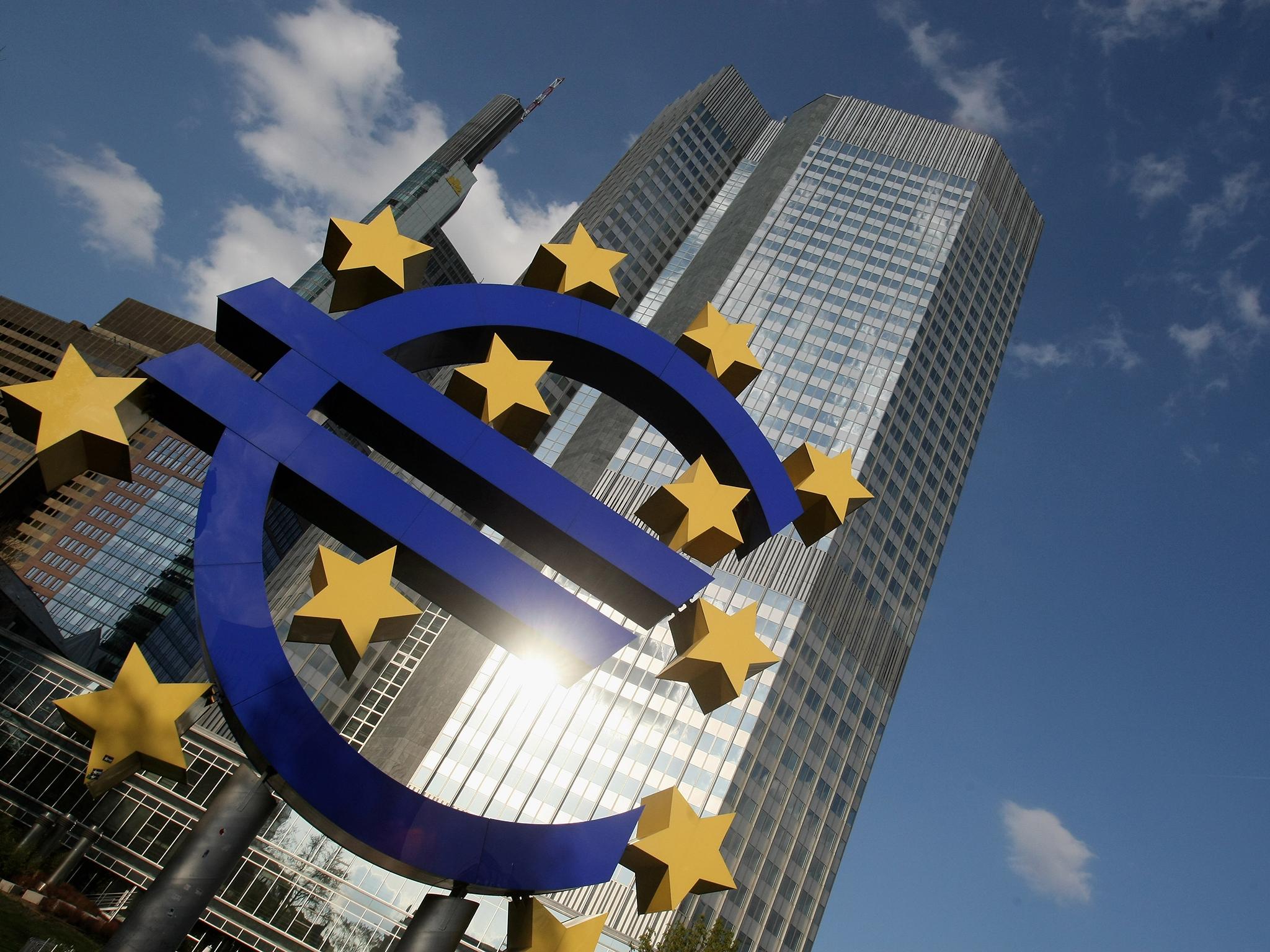The European Central Bank has announced that it will start scaling back its massive €60bn-per-month asset buying programme in the new year, setting the scene for an eventual interest rate hike and underscoring the extent to which the bloc’s economy has recovered since the financial crisis.
In a statement on Thursday, the bank said that from January 2018 it would reduce its monthly asset purchases – which include government bonds and other low-risk financial instruments – to €30bn per month. It will continue at that pace until at least September 2018.
It said that if the eurozone’s economy deteriorates, its governing council stands ready to increase the terms and the duration of the programme again.
The programme, known as quantitative easing, was unveiled in early 2015. Since then the central banks has bought around €2.1 trillion worth of assets, effectively pumping money into the European economy in an attempt to keep its recovery from the financial crisis on track.
It's is considered one of the main reasons why Europe’s economy has proved so resilient in recent years. But quantitative easing has not fully succeeded in stimulating price rises. Inflation remains stubbornly below the ECB’s official target of just below 2 per cent and wage growth has proved sluggish too.
On Thursday the ECB said that it would readjust the parameters of the programme if “financial conditions become inconsistent with further progress towards a sustained adjustment in the path of inflation”.
ECB president Mario Draghi called the adjustment a "recalibration" and told a press conference that the bank's work towards boosting inflation and safeguarding growth was not yet done.
He said that the bloc's economic outlook had improved but that inflation had yet to show convincing signs of an upward trend.
“Domestic price pressures are still muted overall and the economic outlook and the path of inflation remain conditional on continued support from monetary policy,” he said. “Therefore, an ample degree of monetary stimulus remains necessary.”
European stocks and the euro slipped somewhat in the wake of the announcement, but analysts said that the announcement was broadly in line with what forecasters had been expecting.
“The ECB delivered in line with market expectations, extending quantitative easing by nine months at a pace of €30bn per month,” said Charlie Diebel, head of rates at Aviva Investors. “While this is half of the current pace, it represents another €270bn of purchases, or liquidity, injected into European fixed income,” he said.
Nancy Curtin, chief investment officer at Close Brothers Asset Management, also said that while the tapering was notable, the bond-buying programme has hardly come to an end.
“This slow, steady and widely predicted approach hopes to rein in the euro from rising further, which is limiting the earnings capacity of European exporters, at the same time as avoiding a European taper tantrum in the markets,” she said.
"Whether one can be achieved without the other remains to be seen."
In 2013, US Treasury yields surged – in what became known as the "taper tantrum" – when the Federal Reserve announced that it would start unwinding its quantitative easing programme, leading investors to panic-sell bonds in anticipation of their value falling.
Separately on Thursday the ECB announced that it was keeping interest rates on hold and that it would continue charging 0.4 per cent on deposits held at the bank.
Subscribe to Independent Premium to bookmark this article
Want to bookmark your favourite articles and stories to read or reference later? Start your Independent Premium subscription today.


Join our commenting forum
Join thought-provoking conversations, follow other Independent readers and see their replies